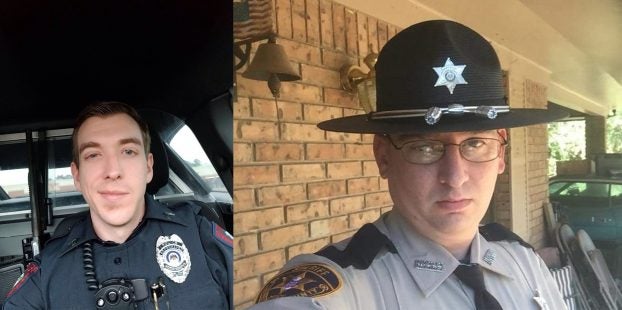Brookhaven police deaths spark proposed law changes
Published 10:03 am Thursday, January 24, 2019
A Brandon lawmaker has filed legislation aimed at preventing another tragedy like the shooting deaths of two Brookhaven police officers last year.
The man accused of killing the two officers when they responded to a call of “shots fired” was out on bond for previous crimes. Marquis Aaron Flowers, 26, was charged with two counts of capital murder in the shooting deaths of Brookhaven police officers Zach Moak and James White.
Flowers was charged with crimes in Adams County in February 2017 while he was out on parole. Instead of being sent back to prison for violating parole, the crimes were considered “technical violations” of his parole and he was sent to serve time at a technical violation center, according to officials. After he completed his time there, he was paroled again but with a detainer to Adams County to answer for crimes there. An Adams County judge in May set his bond at $50,000 for those crimes and he was released, still on parole.
Flowers did not report to his parole officer or show up for a court hearing in August. A bench warrant was issued for his no-show. He is accused of shooting the two officers in September of 2018.
Rep. Mark Baker’s House Bill 871 aims to codify and set up proper use of a “parole to detainer” process. It also excludes felonies or crimes of violence from “technical violations.” Flowers could have been sent back to prison to serve his full sentence in 2017 if his felony charges would not have been considered “technical violations.”
If the state parole board uses the “parole to detainer” process, the following actions, among others, would be taken if an offender’s detainer is cleared or satisfied, according to Baker’s bill:
• The booking clerk at the county jail to which the offender was paroled to a detainer shall notify the sheriff’s department in the paroling jurisdiction as well as the offender’s parole officer of the court’s decision.
• If the offender is able to bond out or the detainer is cleared, the offender shall not be released from custody until the notification is received and acknowledged by the sheriff’s department and the parole officer.
• The sheriff’s department in the jurisdiction which paroled the offender shall temporarily retake physical custody of the offender to ensure that all other conditions of the offender’s parole are satisfied before release.
HB 871 has been referred to the House Corrections Committee.






